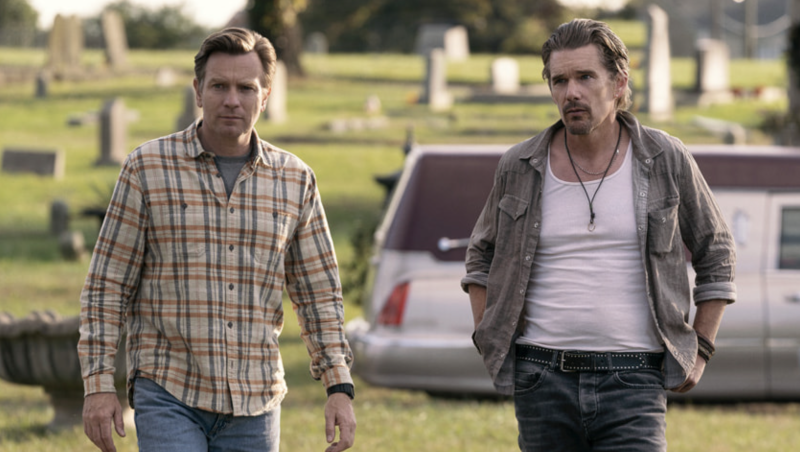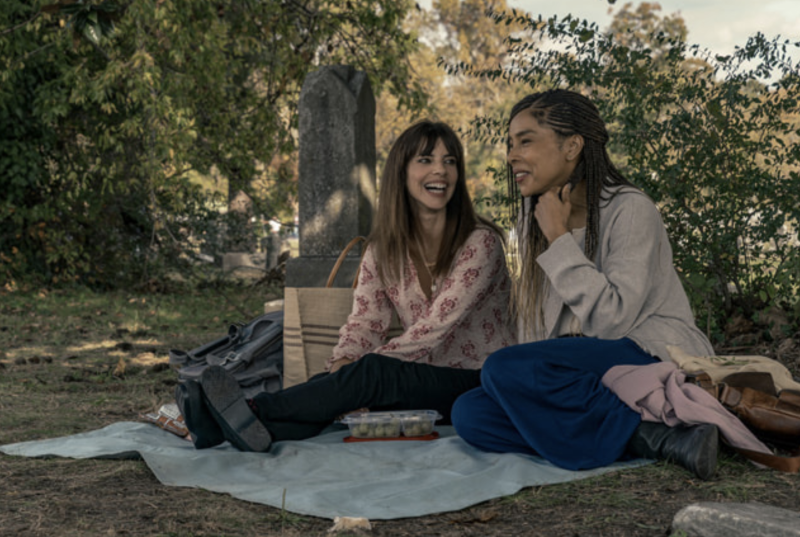When I was in my early twenties I spent three years in a relationship with a man that I came to regard as monstrous. We happened to be married for six months of that, so when he died suddenly a decade after we had ceased all contact, I was inundated with well-meaning sympathy messages. His death had not inspired any feelings of grief in me, and I resented the expectation that it should. Instead, his demise merely dragged back up all of the resentments I felt towards him, and forced me to finally reckon with them.
'Raymond & Ray' Offers Catharsis For the Emotionally Wounded

I wouldn’t ordinarily start a movie review with a personal anecdote — especially not one this intimate. But when it comes to evaluating Raymond & Ray — the story of two abused brothers reuniting to deal with the burial of their vindictive father — it feels impossible not to mention. A movie about having to put on a polite, respectful face to bury someone you hate is not going to be for everyone. But I related to, and enjoyed, it immensely.
The basis of Raymond & Ray remains more taboo than it should be. The film is in some ways an examination of how our culture automatically expects grief when someone dies, no matter who they were or what they did in life. Death is the point, we are told, when all should be forgiven. (Just ask Jennette McCurdy, whose autobiography, I’m Glad My Mom Died, inspired ripples of shock when it was released two months ago.) The reality, of course, is infinitely more complicated — something Raymond and Ray goes to some pains to explore.
The movie does an excellent job of capturing the complexity of handling the deaths of people who have hurt but indelibly impacted our lives. As the titular characters, Ewan McGregor and Ethan Hawke both beautifully convey just how the betrayal of a loved one can wreak havoc on people in permanent ways. The way that both of them deal with that hurt — McGregor’s Raymond tries to lean into forgiveness, Hawke’s Ray embraces his anger — is appropriately messy but ultimately liberating.
Given the subject matter, it’s somewhat surprising how much levity creeps into Raymond & Ray. The humor here is dark — nowhere more so than when Raymond unpacks the cardboard box of junk that his father left to him — but it does feel consistently real. Nowhere more so than in the sheer number of other characters who offer the brothers sympathy, and obliviously sing their old man’s praises, regardless of their stony facial expressions.
Raymond & Ray is also a meditation on fathers and sons; men and boys. The issue of boyhood in particular rears up repeatedly as the characters ponder where exactly their lives went off the rails. Ray notes that he can’t picture his father as a small boy, and admits that he never had children because he “wouldn’t know what do with a kid — especially a boy.” Raymond, on meeting an unsullied younger brother that he didn’t know he had, grumbles: “That boy, he bugs me.” The brothers weren’t permitted a happy childhood, so they have skewed ideas of what boyhood should actually be or, at the very least, look like.

As is to be expected from a movie that leans so much into the masculine, the female characters here, though given their own layers, are only about two steps away from being tropes. Both Lucia (Maribel Verdú) and Kiera (Sophie Okonedo) are caretakers at their core, and both become romantic interests to the brothers. Thankfully, neither woman behaves as predictably as one might expect, and both Verdú and Okonedo’s engaging characterizations push past the limitations of their roles.
Where Raymond & Ray falls a little short is in its conclusion. How both men react at the end of their father’s funeral is infinitely more satisfying than anything that comes after. The subsequent scenes feel in some ways tacked on for the sake of a neater conclusion than is necessary. Instead of sunnying things up at the end, it would have been better to hone in a little more on the thing Raymond & Ray does best. And that’s giving the audience permission to explore their own resentments loudly and unapologetically. Given my own history, I appreciated that. If you have a messy past of your own, you probably will too.

‘Raymond & Ray’ premieres on Apple TV+ on Oct. 21st, 2022.

